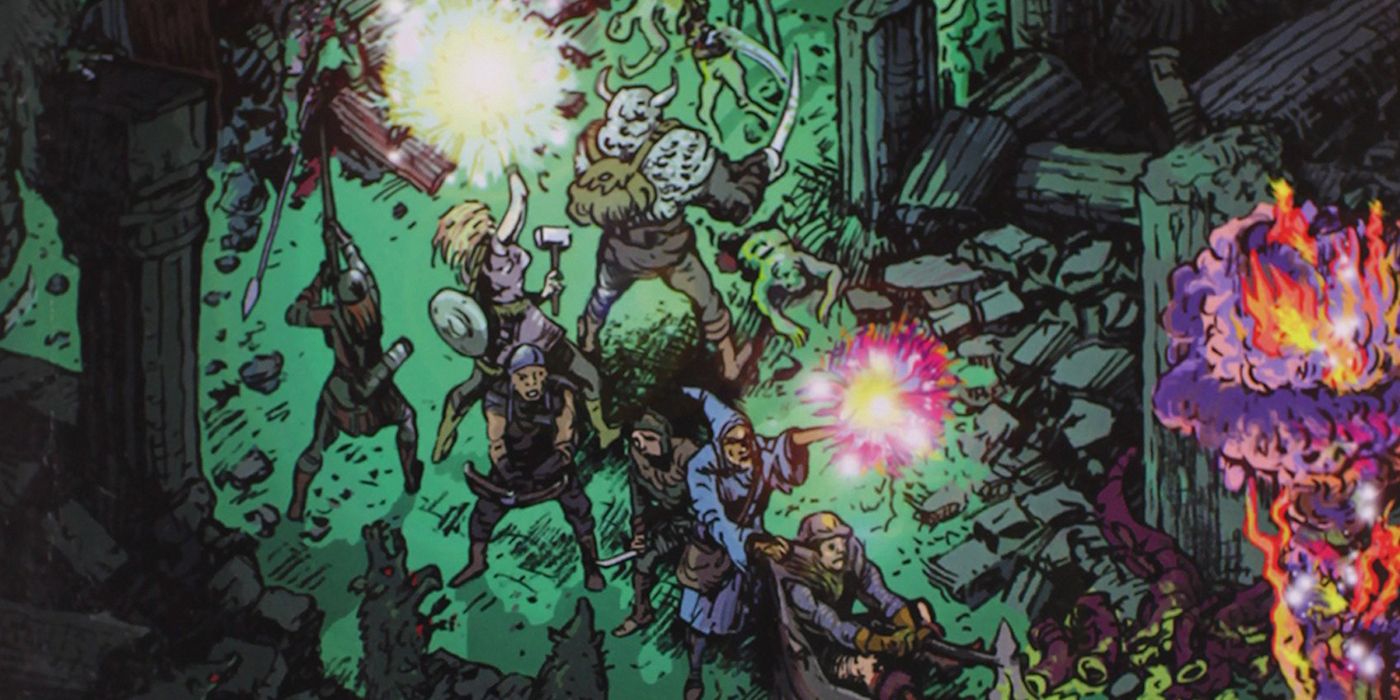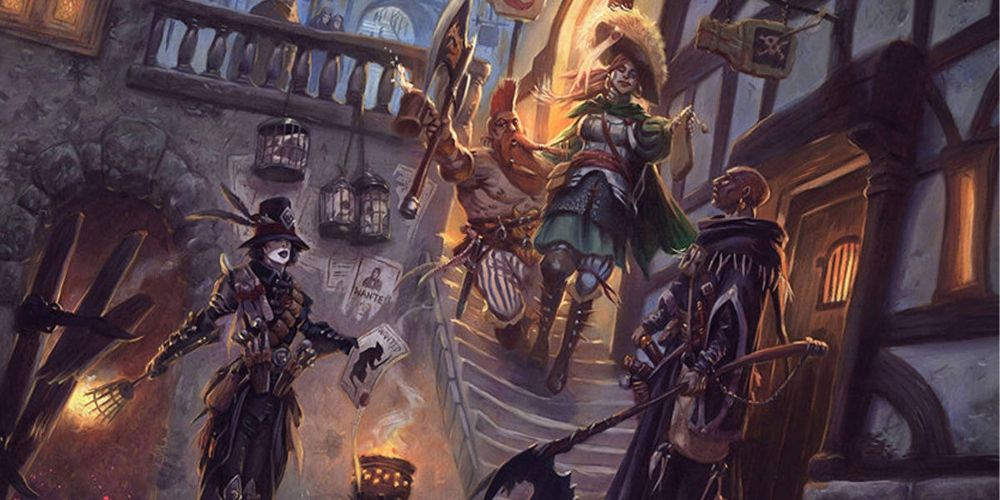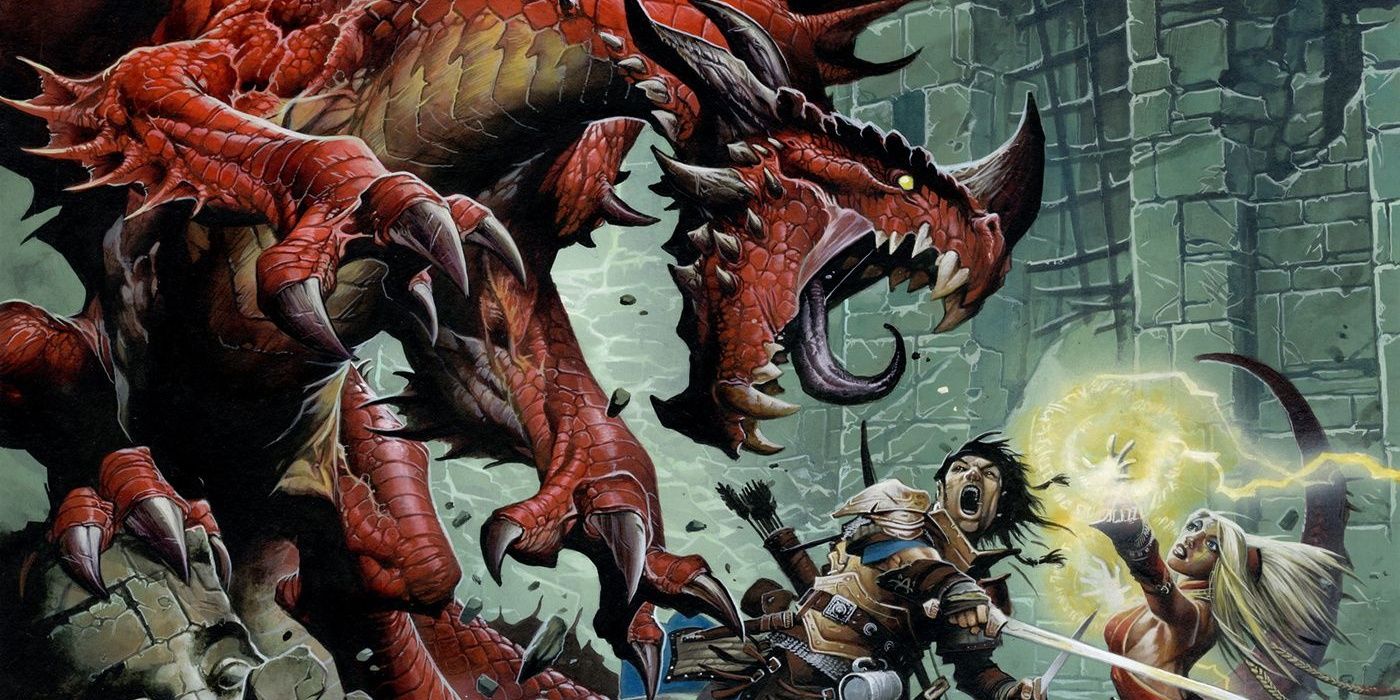Dungeons & Dragons is the classic fantasy tabletop RPG and a favorite for many reasons. Fifth Edition is particular is incredibly accessible, has plenty of players, and has name recognition. D&D is everywhere now, with multiple popular actual play shows, celebrity players, and tons of content. Its rules are also extremely flexible and can be molded to fit a wide array of playstyles. However, while D&D is a fantastic game that does a lot of things wells, no single game or system can do everything perfectly.
Outside of D&D, there are many other tabletop RPGs that handle certain elements differently or emphasize different mechanics and playstyles. For groups that want something different, or want to try something new here are five fantasy RPGs and what they do better than D&D 5e.
Dungeon World Is Easy to Pick Up and Play
Dungeon World takes the spirit of classic old-school fantasy RPGs and modernizes them with the Powered by the Apocalypse rules system. Thanks to PBTA, Dungeon World is ridiculously easy to start playing. Character creation can take just a few minutes and starts with picking a class first and foremost, so by the end of session zero, characters will already have bonds and history with the other characters.
Dungeon World forgoes traditional Dungeon Master prep and instead encourages players and the DM to collaborate on building an interesting world to explore, making it easy to jump right into the game itself. While PBTA moves can be limiting at times, they are straightforward and keep the game moving, limiting analysis paralysis during player and DM turns.
Warhammer Fantasy Roleplay Has a Classic Setting & Unique Character Creation
Warhammer Fantasy Roleplay is a classic tabletop RPG that was able to carve out a niche in the early years of the hobby. Its fourth edition was released in 2018 and brought with it some modernization to the rules while maintaining the spirit of the original editions. One of WFRP's strengths is its setting. Warhammer's world has been developed through decades of stories and lore with hundreds of unique and interesting characters for the DM and players to encounter.
WFRP also encourages players to use randomization tables during character creation, leading to characters players wouldn't normally consider playing. Instead of just suggesting players build characters in this manner, WFRP rewards players with extra experience points every time they randomize a major part of their character. The game never forces players to randomize if they already have a concept they want to play, but it's a nice incentive to get players to try something new.
Pathfinder Provides Deeper Character Customization and Progression
Pathfinder was born out of D&D 3.5 Edition, as many players were dissatisfied with the changes made in Fourth Edition. Paizo took the opportunity to make its own game. Pathfinder's origins may make it feel similar to D&D, but it has a few mechanics that make progression more meaningful. Skills can be trained providing a bigger bonus when rolling them.
The amount of points available to train skills is based on a character's class and intelligence. This makes intelligence a useful statistic regardless of class. Additionally, Pathfinder has class archetypes that are similar to 5e's subclasses but allow the player to take more than one and can change a class' playstyle dramatically. Lastly, there are prestige classes that have unique requirements to take and greatly increase the power of a character. All of these options allow for more granular customization compared to D&D 5e.
Legend of the Five Rings Provides Social Obligations & Emotional Consequences
In Legend of the Five Rings, players take the role of samurai of one of the feudal clans of the empire of Rokugan, a fantasy state based primarily on Sengoku era Japan. As part of the warrior-nobility of the empire, it is their job to maintain their honor by showing loyalty to their lord. Unlike in D&D, these duties are represented mechanically. The honor mechanic gives bonuses for maintaining and upholding the code of Bushido. However, maintaining honor and composure is a stressful activity that can cause strife.
The strife mechanic also allows players to model the emotional stress of life as a samurai. It can be gained from many sources, from random rolls of the dice to narrative moments. Strife needs to be managed carefully, or the player character will become compromised. Players can get rid of strife by unmasking, letting out all the emotional stress they have gone through. However, no matter how a player deals with strife and honor, there will be consequences for their actions.
Zweihander Is Not Afraid to Ruthlessly Kill Characters
Zweihander is Warhammer Fantasy Roleplay's version of Pathfinder. After the third edition of WFRP disappointed many fans, Grim & Perilous Studios released Zweihander to fill in the gap left by Fantasy Flight's game. Unlike WFRP, Zweihander is setting-agnostic and can be used in any dark fantasy world. What sets Zweihander apart from both D&D 5e and WFRP 4e is its brutality and lethality.
Instead of hit points, Zweihander uses a tiered damage condition tracker starting with "unharmed" and ending with "slain." Each subsequent step in the track is harder to fix with a heal test, which can only be taken once a day. Failures can make damage worse. With magical healing being rare and dangerous in its own right, it takes a long time to heal from a fight in Zweihander. While death is not for everyone, character death can lead to interesting story moments, and Zweihander embraces that mentality.







